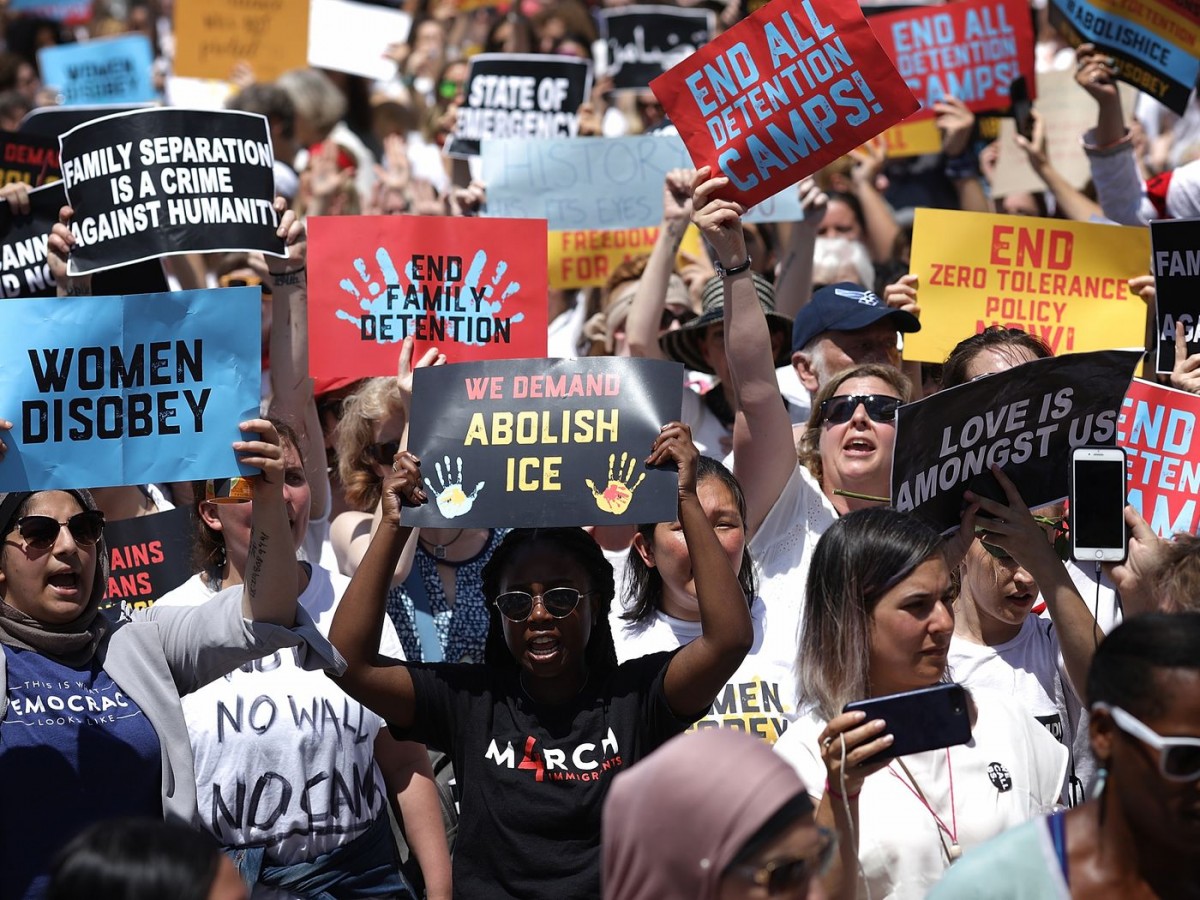by Tia Benjamin
In September of 2020 a former nurse at the Irwin County Detention Center in Georgia, Dawn Wotton, alleged that migrant women were being forced to have unjustified hysterectomies. In addition, she spoke of the poor sanitary conditions that detainees were being subjected to despite the nation being in the midst of one of the most dangerous and deadly global pandemics to date. These allegations are just some of the many other accusations brought against this facility as various organizations including, ‘Project South’ have been fighting tirelessly to reveal the horrifying conditions, misuse of solitary confinement as a silencing act and even evidence of sexual abuse. These various claims shed light on the multi-layered problematic nature of both public attitudes towards “illegal immigrants” as well as the policing of women’s bodies. As a rising public theologian, I believe that one of the most pressing questions as it pertains to public and cultural life is: How can we proclaim to love Jesus who was a refugee fleeing persecution from the time of his birth, yet fail to remember the dismembered?
Nurse Dawn Wotton alleged that women in the facility feared going to doctor Dr. Mahendra Amin, whom they referred to as the “uterus collector.” Dozens of women within the facility reported having full or partial hysterectomies that they didn’t consent to. Many in which lawyers believe were unnecessary. Regardless of legal status, every person is entitled to basic human rights. To force detainees to have medical procedures that they didn’t agree to while ignoring their other medical request is both unethical and sinful. The sterilizing of minority women, both native and immigrant, has had a troubling history for centuries. It comes as no surprise that this is still happening during the present day when considering President Trump’s anti-immigrant attitude and willingness to lock children in cages while claiming to be “pro-life.” In an effort to not go on a rant about the contradictions of our current administrations theology I will briefly outline the need to remember the dismembered as it pertains to the policing of women’s bodies and the public attitude towards detainees who are dismembered.
It is undeniable that our current patriarchal society sets the standard of what is acceptable as it pertains to women’s bodies and their sexual journey. For hundreds of years, masculine Christianity utilized scripture as a way to take away women’s rights. This misinterpretation of scripture as a means of enforcing oppressive policies was really a strategy to overshadow the real issue which was the disruption of the “traditional family structure.” The idea that the virtuous woman stayed silent and submissive while the man made all of the decisions is a socially constructed idea that also influences those who may not be religious. Though ICE has denied all allegations, the thought of detainee women being used for experimental medical procedures by a male doctor is disgusting. As a free woman or one that is detained the policing of women’s bodies is problematic and has to be consistently challenged.
Secondly, Americas attitude towards immigrants promotes a sense of “othering” that desensitizes the public from atrocities that the privileged would deem inhumane if they were experiencing it. In American culture, we teach our children the importance of staying away from strangers. I believe that what is meant to be safety parameters eventually evolves into a lack of concern for those who we’ve been taught to stay away from. Hence why it is often not until we find ourselves or our loved ones in these same positions, that we slow down to realize that like Martin Luther King Jr. once stated, “Injustice anywhere, is a threat to justice everywhere.” Detainees being subjected to housing in the same dorms as others with Covid in addition to not being provided PPE or sanitary items in inhumane and unethical. Yet, because we are so selective as a country about who is worthy of basic rights, thousands of detained persons are neglected, and many times left for dead.
I am aware that there isn’t an easy answer for addressing debates about illegal immigrants, abolishing ICE, policing women’s bodies or exactly what basic human rights are. Nevertheless I believe that as faith leaders we have a responsibility to engage in the sacred teaching of mediating holiness and goodness in response to a broken world for the sake of healing.[1] There is no way that we can fully call ourselves Christians without wrestling with how remembering the dismembered helps us to relate to the suffering of God and our great commission. From a social action perspective advocacy is a skill that is used to correct an injustice of harmful circumstance affecting an individual or a group.[2] Now more than ever persons like those in the Irwin County Detention center need us free persons to advocate for them and do the work to ensure that all persons including detainees experience the love of God. We must accept the challenge to have difficult conversations about race, ethnicity, class, gender and intersectionality as a whole. As people of faith we have to have real conversations with our communities and congregations about mass incarceration, marginalization and injustices. These conversations also need to be inclusive of different ethnicities so that it more than just a venting session by the oppressed or a delusional dialogue by the oppressors.
Questions:
- Do you think that our president’s attitude toward immigrants plays a part in the poor treatment of immigrants in ICE facilities? Why or why not?
- Although we are aware that the situation is currently only an allegation, how does this shed light on the problematic conditions of prisons and jails throughout the country?
- As ministry leaders how do we resist the temptation to use “otherness” and arguments about illegal immigrants as a way to justify allegations of abuse?
[1] Teaching as a sacramental act, 73
[2] Lament to Advocacy, 16.



1 Comment
Add Yours →Really helped by your intersectional analysis, Tia! These women are experiencing the brutality of a dehumanizing anti-immigrant ethos, *and* the policing of women’s bodies. (You’re right about the moral incoherence of claiming a pro-life agenda and committing acts like this!)
Re-membering the dismembered is an especially needed and difficult practice in this situation, where the detainees are often hid from public view. Thank you for sharing this story.